Heartland Local Food (2020)
Género : Documental
Tiempo de ejecución : 57M
Director : Benjamin Garner, Ph.D.
Sinopsis
This film explores food sustainability, how farmers' markets build community, and why local food matters. Filmmaker Dr. Benjamin Garner is an Associate Professor at the University of North Georgia. He produces films on food, marketing, and tourism. Dr. Garner consults with companies on soft skills training and produces video ads for web and social media.

Una ácida y crítica mirada a la industria alimentaria en Norteamérica.

Expertos científicos y celebridades activistas revelan las formas en que el suelo terrestre puede ser la clave para combatir el cambio climático y preservar el planeta.

Este documental ofrece una escudriñada mirada en las implicaciones económicas, políticas y ecológicas de la desaparición mundial de la abeja. La película examina nuestro actual paisaje agrícola y celebra la antigua y sagrada conexión entre el hombre y la abeja melífera. La historia pone de relieve los cambios positivos resultados debido al trágico fenómeno conocido como "Colony Collapse Disorder". Para potenciar la audiencia, el documental provee a los espectadores de soluciones tangibles que pueden aplicar a su vida diaria. La desaparición de las abejas se desarrolla como una dramática historia de ciencia y misterio, iluminando esta extraordinaria crisis y su mayor significado sobre la relación entre la humanidad y la Madre Tierra. Las abejas tienen un mensaje - pero escucharemos?
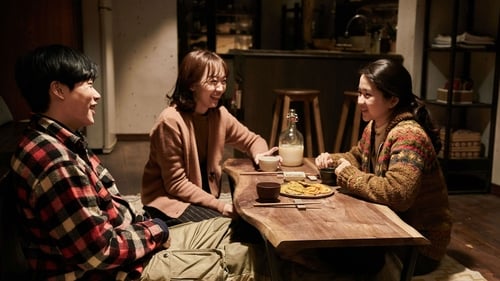
A young woman leaves the city to return to her hometown in the countryside. Seeking to escape the hustle and bustle of the city, she becomes self-sufficient in a bid to reconnect with nature.
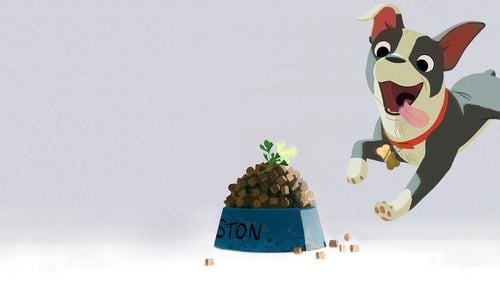
Vemos la historia de la vida amorosa de un hombre a través de los ojos de su mejor amigo, su perro Winston, que, mordisco a mordisco, se va revelando a través de las comidas que comparten.
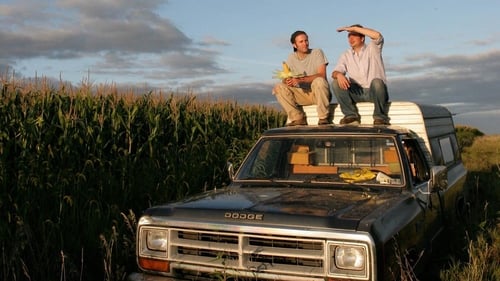
King Corn is a fun and crusading journey into the digestive tract of our fast food nation where one ultra-industrial, pesticide-laden, heavily-subsidized commodity dominates the food pyramid from top to bottom – corn. Fueled by curiosity and a dash of naiveté, two college buddies return to their ancestral home of Greene, Iowa to figure out how a modest kernel conquered America. With the help of some real farmers, oodles of fertilizer and government aide, and some genetically modified seeds, the friends manage to grow one acre of corn. Along the way, they unlock the hilarious absurdities and scary but hidden truths about America’s modern food system in this engrossing and eye-opening documentary.

Fleeing heartbreak in the big city, Ichiko returns to Komori, her rural hometown. She battles summer's rain and humidity, bakes her own bread, grows hothouse tomatoes and tills the fields. During autumn, the time for pickling and preserving fish and sweet potatoes, Ichiko begins reaping rice and recalls her departure five years before.
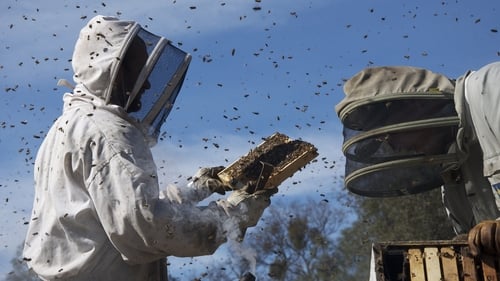
Una mirada en profundidad a las colonias de abejas de California, Suiza, China o Australia. Markus Imhoof, cineasta veterano y nieto de apicultores, dirige este documental en el que nos muestra las distintas formas de interacción entre hombres y abejas, analizando tanto la labor de apicultores y agricultores como el funcionamiento de las colmenas, una enigmática e inteligente sociedad animal donde cada miembro desempeña su labor a la perfección.
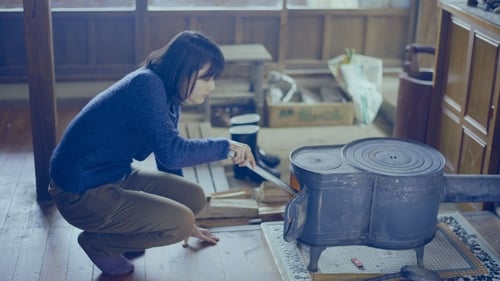
Ichiko vive en Komori, una pequeña aldea del nordeste de Japón. Se mudó a la ciudad en una ocasión, pero se sintió perdida allí y regresó. Sin supermercados ni tiendas de comestibles cerca, para vivir en Komori es necesario alimentarse de la tierra. Ichiko cultiva su arroz, trabaja la granja y prepara comidas con alimentos de temporada recolectados en las montañas y campos vecinos.

For ancient Mayans, cocoa was as good as gold. For subsistence farmer Eladio Pop, his cocoa crops are the only riches he has to support his wife and 15 children. As he wields his machete with ease, slicing a path to his cocoa trees, the small jungle plot he cultivates in southern Belize remains pristine and wild. His dreams for his children to inherit the land and the traditions of their Mayan ancestors present a familiar challenge. The kids feel their father's philosophies don't fit into a global economy, so they're charting their own course. Rohan Fernando's direction tenderly displays a generational shift, causalities of progress in modern times and a man valiantly protecting an endangered culture. Breathtaking vistas of lush rainforests contrast with the urban dystopia that pulled Pops children away from him. Will one child return to carry on a waning way of life
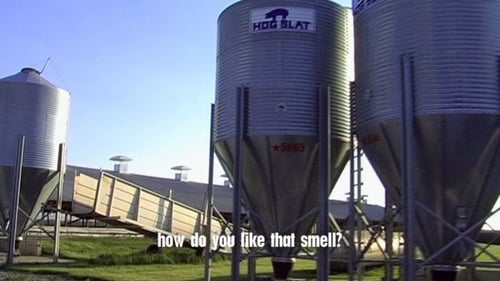
FRESH is more than a movie, it’s a gateway to action. Our aim is to help grow FRESH food, ideas, and become active participants in an exciting, vibrant, and fast-growing movement.

At the focal point of this movement, and of this film, are the farmers and chefs who are creating a truly sustainable food system. Their collaborative work has resulted in great tasting food and an explosion of consumer awareness about the benefits of eating local. Attention being paid to the local food movement comes at a time when the failings of our current industrialized food system are becoming all too clear. For the first time in history, our children's generation is expected to have a shorter lifespan than our own. The quality, taste and nutritional value of the food we eat has dropped sharply over the last fifty years. Shipped from ever-greater distances, we have literally lost sight of where our food comes from and in the process, we've lost a vital connection to our local community and to our health.

A look at man's relationship with Dirt. Dirt has given us food, shelter, fuel, medicine, ceramics, flowers, cosmetics and color --everything needed for our survival. For most of the last ten thousand years we humans understood our intimate bond with dirt and the rest of nature. We took care of the soils that took care of us. But, over time, we lost that connection. We turned dirt into something "dirty." In doing so, we transform the skin of the earth into a hellish and dangerous landscape for all life on earth. A millennial shift in consciousness about the environment offers a beacon of hope - and practical solutions.

Local, organic, and sustainable are words we associate with food production today, but 40 years ago, when Fran and Tony McQuail started farming in Southwestern Ontario, they were barely spoken. Since 1973, the McQuails have been helping to build the organic farming community and support the next generation of organic farmers. This is a documentary about the McQuails that explores the very real ways their farm has contributed to the long term ecological viability of agriculture in Ontario. It is a call to action for all those who believe there is a better way to take care of our planet and feed the world.











